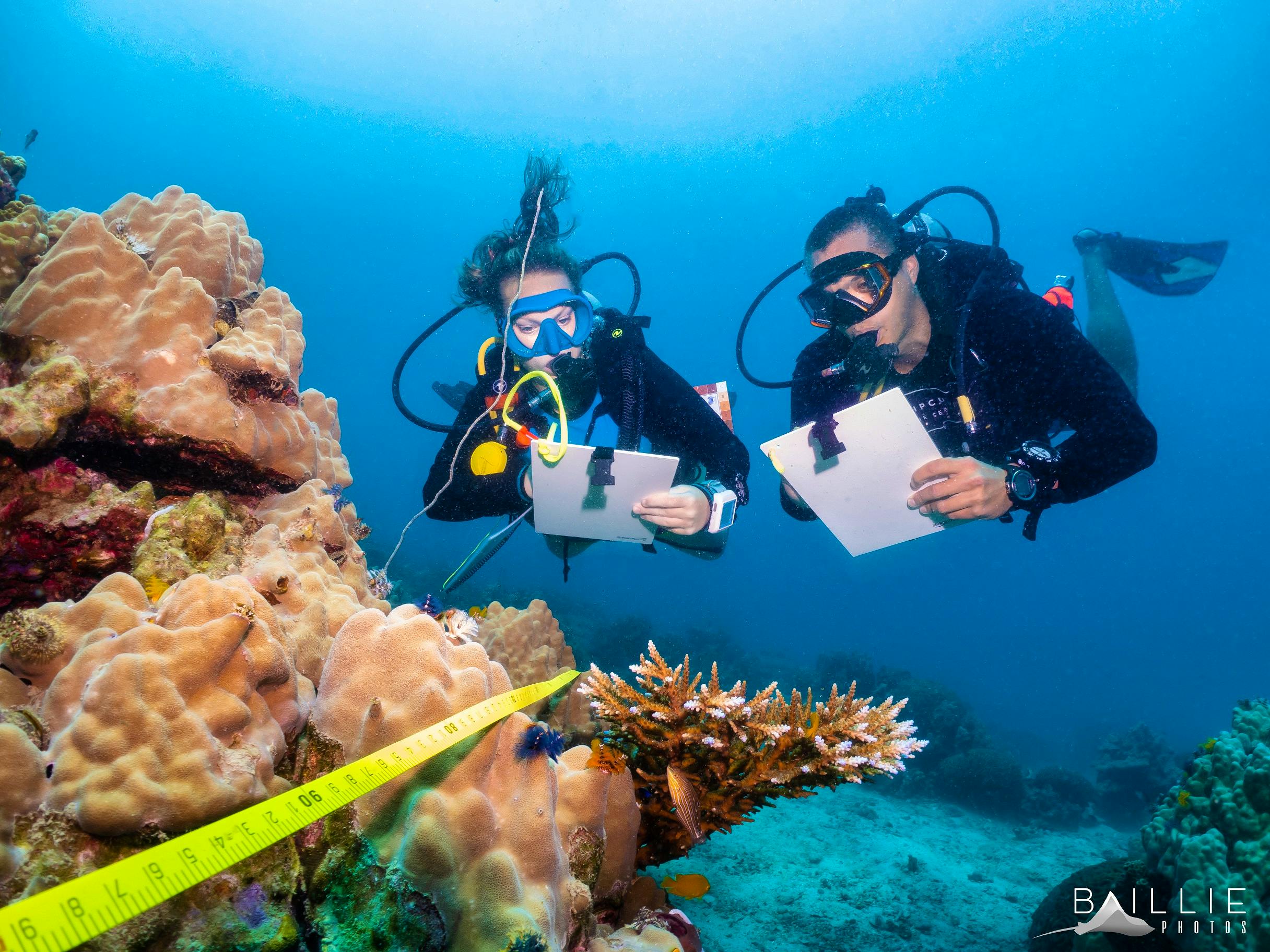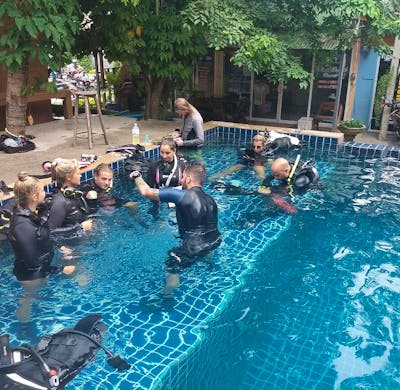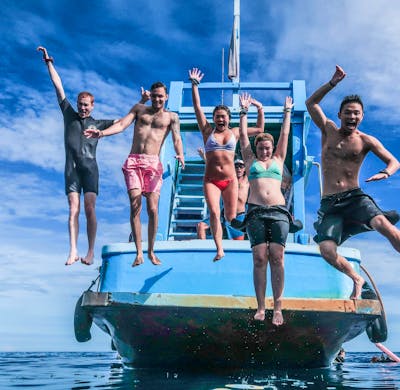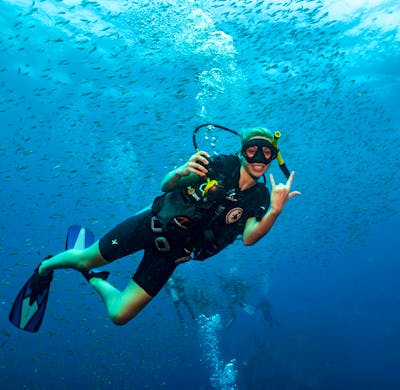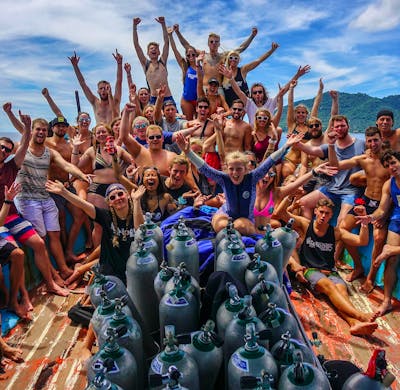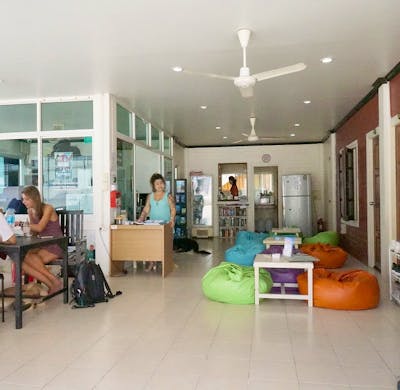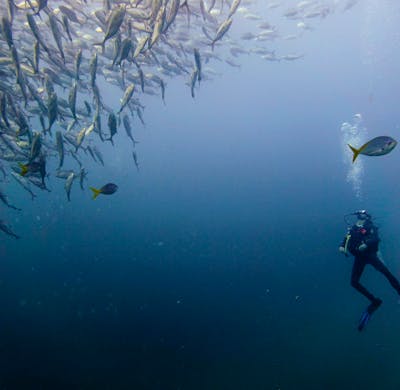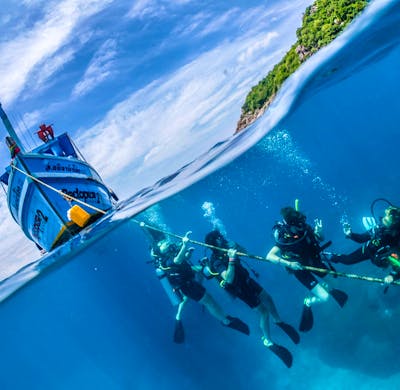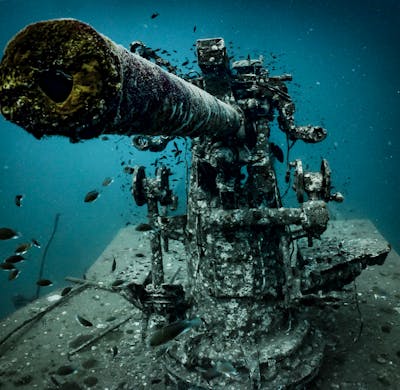Coral reefs cover just 1% of the ocean`s surface, yet are home to over a quarter of all marine species. Conducting underwater research around the island is essential to understand the effects both global and local threats may be having on reef organisms in order to help minimise and manage them in Koh Tao`s reefs, as well as contribute solutions to more globalised threats to reefs in other parts of the world. Threats are e.g. growing industries, pollution, run-off, sedimentation and negative impacts of tourism.
With over 25 dive sites surrounding this tropical island and crystal clear waters it includes a variety of reef types from shallow walls carpeted with corals to deep submerged pinnacles home to dense schools and large predators. This setting provides a number of study systems to investigate a diverse range of topics surrounding marine ecology and conservation. In addition to the diversity of ecosystems, calm conditions of the water with minimal currents and visibility often reaching over 30 m allows to become more intimate with the marine organisms. The ability to get close with a minimal disturbance often benefits when trying to identify specific features and for conduction research.
With your participation in this program we can get to know the situation in Koh Tao better via scientifically conducted research, make recommendations for actions and implement them in active conservation work. This all helps us understand and improve the future for corals, reefs and whole ecosystems.
WHAT TO EXPECT:
Dive Training
Your program begins with RAID Open Water & Advanced Open Water diver courses and certifications. These entry level certifications consist of both confined and open water training and allow you to grasp the basic principles of scuba diving as well as navigation, buoyancy control and search & recovery practice. For those on the 8- and 12-week courses, you will also complete your Advanced First Aid & oxygen provider and Rescue Diver training equipping you with crucial lifesaving skills and knowledge in how to prevent and mange problems in the water. Those on the 12-week course will achieve their professional Divemaster training as well as Nitrox and Deep 40 training.
Marine Ecology & Conservation Training
Running alongside your dive training is our comprehensive science training program where you will develop the necessary skills needed to identify key ecological components of tropical coral reef systems, and how to monitor and manage these elements. You’ll be taught survey methods and conduct vital data collection to help monitor and conserve the biodiversity and overall health of the reef and marine life it supports. All classroom and underwater sessions are conducted by highly qualified and experienced staff who specialise in marine biology/ecology and have an extensive knowledge of Koh Tao’s reefs.
Surveys & Project Work
Throughout your time in the island, you will actively participate in a variety of long-term monitoring and research projects, gathering essential data from the reefs of Koh Tao. Activities include contributing to identifying key factors associated with reef ecosystem health as well as monitoring trends in factors over time which ultimately provides vital information needed to inform effective management strategies. You will also participate in conservation initiatives, restoring the reefs of Koh Tao and the diverse and abundant marine life these reefs support, as well as getting involved with some important ecological research as you explore the complex and vital world of Crown of Thorns, Grouper and Pelagic fish.
Divemaster Training (12-weeks only)
The 4-week Divemaster training program is your first step into the world of professional dive qualifications. Building on the experience you have gained over the past 8-weeks, the Divemaster course is the first level of professional SCUBA diver training, creating both confident and experienced divers that are then able to work in the diving industry across the globe. Once qualified as a Divemaster, you will be able to plan, conduct and lead dives, transforming your hobby into a possible new career!
Projects you can get active in are as follows:
- Reef monitoring. Monitoring trends in the abundance and diversity of benthic substrates, invertebrate populations and reef fish populations at a selection of coral reef sites.
- Pelagic fish population monitoring. Monitoring trends in the abundance and diversity of higher trophic level pelagic species and other predators that are at an increased risk from high (and potentially poorly regulated) fishing pressures.
- Coral Watch. Citizen science project aimed at gathering data and monitoring trends on the bleaching status of corals.
- Crown of Thorns Research. Gathering data on the abundance, size classes, habitat preference, and dietary preference of Crown of Thorns on reefs holding potential outbreak populations.
- Coral Nurseries. Transplanting coral fragments found in sandy patches which would otherwise have a low probability of survival to promote survival and growth of new colonies. Also involves data collection on growth rates and changes in fragment condition.
- Water quality. Monitoring trends in abiotic factors e.g. water temperature, salinity, pH, turbidity, nutrient levels, dissolved oxygen content etc.
- Habitat preferences modelling. Identifying the habitat preferences of marine organisms including commercially harvested sea cucumbers with unknown population trends, some of which are classified as ‘vulnerable’ by the IUCN Red List of Endangered Species.
- Behavioural studies. Used to assess the habituation of marine organisms to divers.
- Reef trash removal and discarded net salvage dives.
- Underwater mooring line establishment and maintenance.
- Beach clean ups
- Fun Dives!
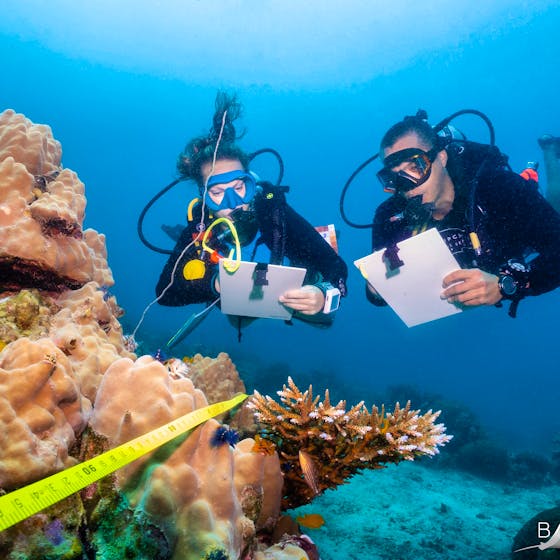
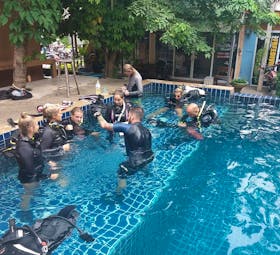
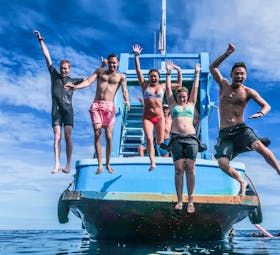
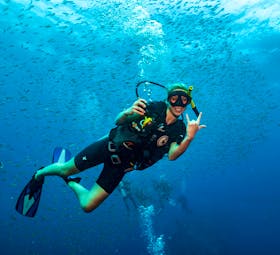


 4.6
4.6

